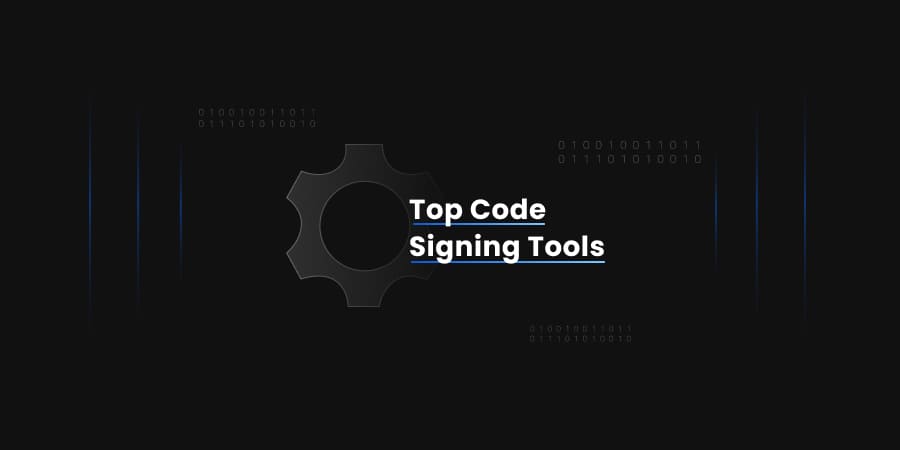Code signing certificates play a crucial role in ensuring software authenticity and integrity. However, they have also become prime targets for supply chain attacks, posing risks to the entire software supply chain. This article explores the targeting of code signing certificates in supply chain attacks, their impact on organizations, and measures to protect against such threats.
Understanding Supply Chain Attacks
Supply chain attacks are cyberattacks that exploit vulnerabilities in an organization’s supply chain. These attacks compromise third-party vendors, suppliers, or contractors to gain unauthorized access to the target organization’s systems. Attackers exploit the lower security measures of these third parties and use tactics like malware injection or data theft to propagate throughout the supply chain network. Successful supply chain attacks can have severe consequences, including data breaches, intellectual property theft, financial losses, and reputational damage.
In today’s interconnected digital landscape, supply chain attacks have emerged as a significant and evolving threat to cybersecurity. These attacks exploit vulnerabilities in an organization’s supply chain, targeting third-party vendors, suppliers, and contractors to gain unauthorized access to valuable systems and data. By infiltrating the systems of these trusted entities, attackers can move laterally within the supply chain network, potentially compromising multiple interconnected systems and wreaking havoc on organizations. It is crucial for businesses to understand the nature of supply chain attacks and take proactive measures to protect their digital assets.
Code Signing Certificates as Supply Chain Attack Targets
Code signing certificates, which verify the authenticity and integrity of software, have become attractive targets for supply chain attacks. Attackers compromise the code signing process to inject malicious code into legitimate software, which is then distributed through regular software channels. Detecting such attacks becomes challenging, and their impact can be widespread. Attackers can acquire code signing certificates by compromising development environments, employing social engineering techniques, or using stolen or forged certificates to make their malware appear legitimate. Examples of supply chain attacks involving code signing certificates include the SolarWinds malware incident in 2020.
Code signing certificates, once considered a cornerstone of software security, have now become attractive targets for supply chain attacks. These certificates provide digital signatures that verify the authenticity and integrity of software, assuring users that it has not been tampered with and originates from a trusted source. However, attackers have recognized the potential of compromising code signing certificates to distribute malicious software through legitimate channels, making detection and prevention challenging. This insidious tactic puts millions of users at risk, and organizations must recognize the vulnerability of their code signing infrastructure and take necessary precautions to safeguard against such attacks.
Impact of Code Signing Certificate Compromise
Compromised code signing certificates can have severe consequences for organizations:
-
Damage to Reputation
Compromised certificates can erode user trust in software vendors, leading to reputational damage and reluctance to download future releases.
-
Financial Loss
Reduced trust can result in decreased sales and revenue, while remediating the situation through certificate revocation and reissuance incurs additional costs.
-
Legal Liability
Harm caused to users due to compromised certificates can result in legal liabilities and costly legal battles.
-
Spread of Malware
Attackers can inject malicious code into legitimate software, which unknowing users download, leading to harm and potential legal consequences.
-
Compliance Violations
Compliance requirements may be violated due to compromised certificates, resulting in regulatory fines and legal liabilities.
Protecting Against Code Signing Certificate Compromise
In the face of the growing threat of code signing certificate compromise, organizations need to adopt robust security measures to protect their software integrity and regain user trust. By implementing comprehensive strategies, organizations can mitigate the risks associated with code signing certificate compromise and prevent the potential devastating consequences. Measures such as secure certificate storage, two-factor authentication, regular auditing, and swift certificate revocation are essential to maintain the integrity of code signing certificates and ensure that only legitimate software reaches end-users. With careful planning and a proactive approach, organizations can effectively safeguard their code signing infrastructure and protect both their reputation and the security of their software supply chain.
Organizations can take several measures to protect against code signing certificate compromise:
-
Secure Certificate Storage
Implement robust security measures to protect certificates, including password protection, encryption, and limited access to trusted personnel.
-
Two-Factor Authentication
Enhance security by implementing two-factor authentication, requiring additional verification alongside passwords, such as security tokens or biometrics.
-
Regular Certificate Auditing
Conduct periodic audits to detect irregularities, unauthorized requests, and revoked certificates.
-
Certificate Revocation
Swiftly revoke compromised certificates, including associated keys, to prevent further misuse.
-
Limited Certificate Access
Restrict access to code signing certificates to authorized personnel with a legitimate need, promptly revoking access when no longer necessary.
-
Secure Network Connections
Transmit code signing certificates over secure network connections using encryption protocols like SSL or TLS to prevent interception and misuse.
-
Vulnerability Scanning
Regularly scan for vulnerabilities in code signing certificate systems, including malware, phishing attacks, and other potential cyber threats.
Conclusion
Code signing certificates are essential for software security but are increasingly targeted in supply chain attacks. The compromise of code signing certificates can have severe consequences, including reputation damage, financial losses, legal liabilities, malware propagation, and compliance violations. Organizations must prioritize secure storage, two-factor authentication, regular auditing, and robust security measures to protect against code signing certificate compromise. Continuous vigilance and proactive measures are crucial to mitigate risks and safeguard against potential damage.




